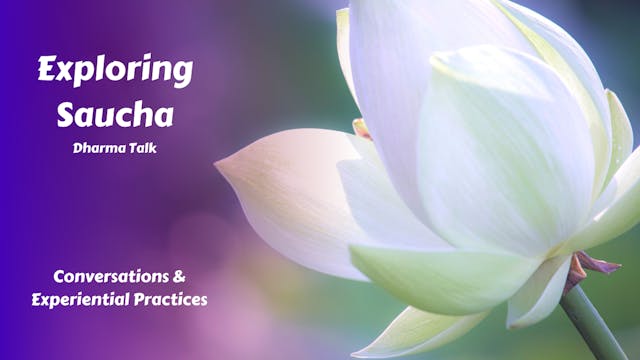Asteya is often translated as nonstealing and can be interpreted several ways. While it can mean not taking from others, it can also mean generosity, non-comparison, living in abundance, giving back, not taking more than you need and more. Join me as we dive deeper into "asteya" through meditation and conversation.
References used: The Yoga Sutras of Patanjali (translated and interpreted by Sri Swami Satchidananda) https://amzn.to/3vcKSFG
The Yamas & Niyamas by Deborah Adele https://amzn.to/3BIAUxa
Up Next in Dharma Talks | Exploring Yoga Philosophy
-
Aparigraha Dharma Chat | Non-Attachment
Aparigraha, the 4th Niyama of Patanjali's Yoga Sutras, is often translated as non-greed, non-grasping, or non-attachment. But sometimes the line between non-attachment and caring for something deeply is a hard one to interpret. Can you release expectations, offer yourself freely, give a gift wi...
-
Saucha Dharma Chat | Purity
Saucha or purity, the second Niyama in Patanjali's Yoga Sutras (2.40) affects every aspect of our lives. Saucha is about cleansing practice and purification practices for body, mind, and spirit. Join me as I share some background, interpretations, ideas, and a practice exploration of this beaut...
-
Santosha Dharma Chat | Contentment & ...
Santosha, or contentment, is the second Niyama in the Yamas and Niyamas set out by Patanjali in his Yoga Sutras. These are the ways we can grow, learn, develop and be better in our own lives.
In this chat we explore ideas on how to translate this sutra and apply it to our everyday lives and h...



3 Comments